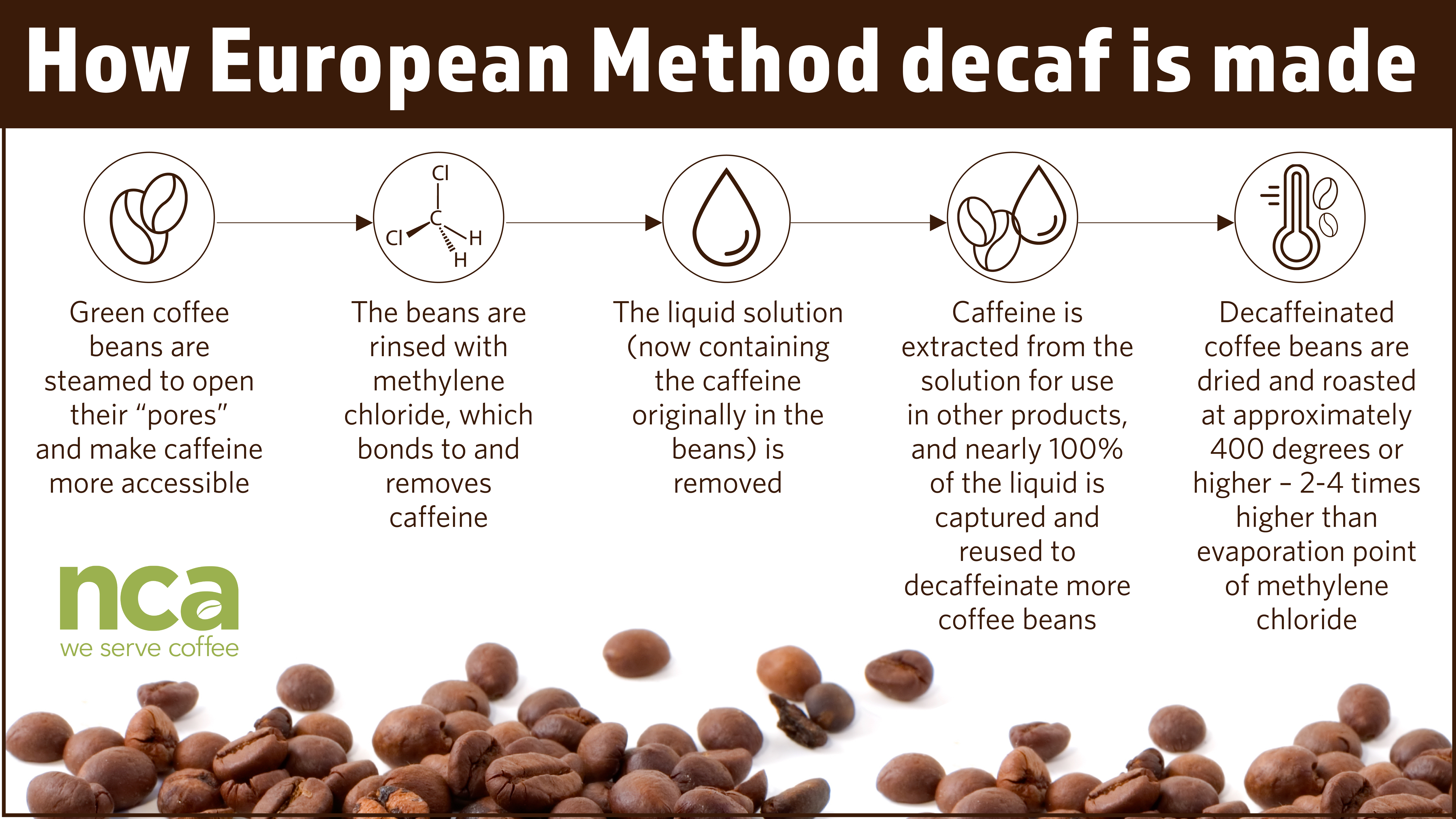FDA, California should reject baseless attacks on European Method decaffeinated coffee
About 10% of American adults (~26 million people) drink decaffeinated coffee every day, the majority of which has been made using the European Method for more than 50 years.
Recently, activist groups known for using scare tactics to frighten Americans about the safety of everyday foods have lobbied the U.S. Food and Drug Administration (FDA) and the California state assembly to pass unjustifiable restrictions against European Method decaf, including a federal ban and misguided labeling requirements in California.
The activist-proposed federal ban would leave only a minority of decaffeinated coffee on the market, increase prices, and restrict Americans’ access to a proven-safe product associated with reduced risk of multiple cancers, among other health benefits. The overwhelming weight of scientific evidence shows that drinking European Method decaf - like all coffee - is associated with significant health benefits, including longer lives and reduced risk of multiple cancers and chronic diseases.
Read NCA's press release on anti-decaf attacks in California
Additional resources: Everything you need to know about caffeine, Get the facts about decaf, Coffee & health from head to toe
What is the status of activists’ proposed restrictions on European-method decaf?
Activist group the Environmental Defense Fund (EDF) has petitioned the U.S. Food and Drug Administration (FDA) to ban European Method decaffeinated coffee, citing tests by another activist group (the Clean Label Project or CLP) which claims to have detected minute traces of a chemical used during European Method decaffeination - methylene chloride.
Simultaneously, CLP is also lobbying the California State Assembly. Originally proposed as a ban on European Method decaf, CLP is currently seeking warning labels, which are just as misguided and baseless as the now-abandoned ban.
FDA has published EDF’s petition, as it is legally required to do, and accepted public comment through March 11. FDA is required to respond to the petition within 180 days; it may request further information or further time to review the evidence.
In California, the Clean Label Project abandoned California Assembly Bill 2066’s proposed ban on European Method decaf, and instead lobbied legislators to advance a last-minute amendment seeking misleading warning labels.
Is European Method decaffeinated coffee regulated and safe?
Yes. The European Method of decaffeination - using methylene chloride - is safe according to rigorous standards set by FDA, the European Food Safety Authority, and other food safety authorities around the world.
FDA has set a safety standard of 10 parts per million (that’s the equivalent of 10 drops of water in 10 gallons) for trace amounts of methylene chloride that may remain in European Method decaf and has said the risk to consumers from drinking European Method decaf is “essentially non-existent.”
CLP claims to have tested 17 decaffeinated coffee samples (the tests have not been independently verified) and admits all range from more than 10% to more than 99.5% below the safe level set by FDA.
What do researchers and health organizations say about the safety of decaffeinated coffee?
The overwhelming weight of independent scientific evidence shows that drinking European Method decaf, like all coffee, is associated with numerous significant health benefits including increased longevity and decreased risk of multiple cancers.
One very large, well-designed study using UK Biobank data found that drinking 3 cups of any kind of coffee per day was associated with a 12% reduction in overall mortality, and the study specifies that “Similar associations were observed for instant, ground, and decaffeinated coffee…” (the majority of which is made using the European Method).
Numerous health authorities affirm the evidence that drinking coffee - including European Method decaf - is associated with significant health benefits:
- In 2016, the World Health Organization’s International Agency for Research on Cancer (IARC) put drinking coffee in its lowest risk category, determining that coffee is not likely to cause cancer and may be protective against some cancers.
- California’s state scientific agency in separate reviews concluded: "A very large number of human studies, taken together, show inadequate evidence that drinking coffee causes cancer. Drinking coffee even appears to reduce the risk of liver cancer and endometrial cancer.”
- The American Cancer Society updated in 2020 its dietary guidelines for cancer prevention and concluded that coffee reduces the risk of skin, mouth, and throat cancer and likely reduces the risk of liver and endometrial cancer.
- The American Institute for Cancer Research recommends consuming coffee “regularly.”
- The World Cancer Research Fund says “...there is strong evidence that coffee decreases the risk of liver and womb cancers. There’s also some evidence that coffee decreases the risk of mouth, pharynx and larynx, and skin cancers.”
How is European Method decaf made?

The majority of decaffeinated coffee is made using the European Method, because it retains flavor, effectively removes caffeine (97+%), conserves energy and water, and any trace of methylene chloride remaining on the beans remains considerably below the safe standard set by FDA (10 parts per million).
All methods of decaffeination rely on chemistry to extract caffeine naturally found in coffee beans, and all are equally safe.